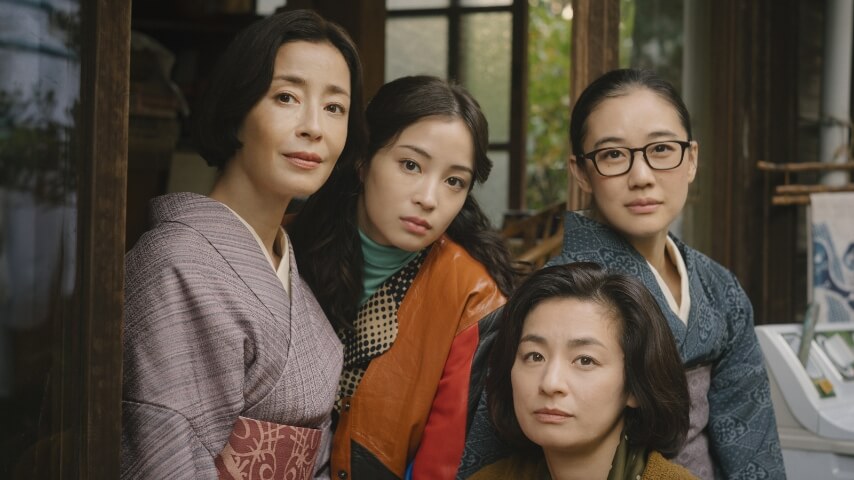Don’t sleep on Asura, Hirokazu Kore-eda’s gorgeous Netflix series
The streamer quietly released the Palme d’Or winner’s heartfelt family drama earlier this month.
Photo: Netflix
“All is comedy. In the end, one question remains: life or death? Such is tragedy.” This line from Natsume Sōseki’s 1907 novel Gubijinso is quoted during a pivotal moment in Netflix’s new series Asura, and it’s a sublime distillation of the show’s spirit. Asura, a heartfelt slice-of-life drama centered on four sisters in 1979 Japan, deftly counters its heavy themes with a light touch. Created by Hirokazu Kore-eda, the seven episodes further emphasize the director’s ability to capture humanity’s best quality: overcoming adversity when that seems like a nearly impossible task.
Kore-eda has achieved this with his previous works like the 2023 series Makanai and, more prominently, films such as Like Father, Like Son and Shoplifters. Perhaps Asura can most be likened to his 2015 feature, Our Little Sister. Both are book adaptations that dwell on the difficult relationship between siblings who stick together despite their differences. Here, Kore-eda uses the extended runtime to flesh out the Takezawa sisters’ distinct personalities, making it easier to connect with them and their ups and downs.
It helps that the heavier subjects—betrayals, funerals, heartbreaks—are portrayed with humor. The sharp scripts are filled with the right amount of banter, so even the tougher scenes are digestible and not melodramatic. And more than that, they feel like real life. A show of this caliber from Kore-eda being quietly released without a big push by Netflix is a bit disheartening if not entirely surprising in the current TV climate. (Admittedly, this writer missed it when it launched on January 9.) Still, having a new, beautiful series (shot on 35 mm!) to take in is always good news.
The inciting event of Asura occurs when the youngest, most shy sister, Takiko (Yû Aoi), discovers her dad is cheating on her mom and has a secret young son. Even the scene in which she breaks the news to her older sisters over dinner is laced with laughter, shock, anger, and gossip—and loops back to laughter again.
Each woman in the show handles their father’s yearslong affair differently. Takiko finds it difficult to trust any man, including the sweet private investigator she develops feelings for. The oldest, Tsunako (Rie Miyazawa), is a mistress herself and gets caught up in the double standards of having to defend her mother. Meanwhile, the third sibling, Sakiko (Suze Hirose), is a rebel who doesn’t see infidelity as a big deal. And then there’s Makiko (Machiko Ono), a mother of two who begins to suspect her own husband might be sleeping with his secretary.
By focusing on each of their POVs, Kore-eda also provides a fascinating cultural and societal snapshot of that era and the pressures women face that men cannot begin to fathom, whether he’s depicting Tsunako’s relationship with a husband, which gets complicated and often unexpectedly funny, or the prude librarian Takiko dismissing the possibility of true love when all she sees around her is pain.
But Asura is strongest when all of the sisters share the screen. The four performers are so in tune with their characters that their interactions become immersive when they’re fighting out loud, snickering over jokes, or sharing comforting hugs after tragedy strikes. That’s when Kore-eda’s empathy towards the Takezawa siblings—and the empathy these protagonists have for each other—shines. The show doesn’t dwell on whether the men in this story are right or wrong because it’s not about them. It’s about the women who are like Asuras (or deities), as stated in the show’s closing moments: They can embody the virtuous and the scornful because they contain multitudes.